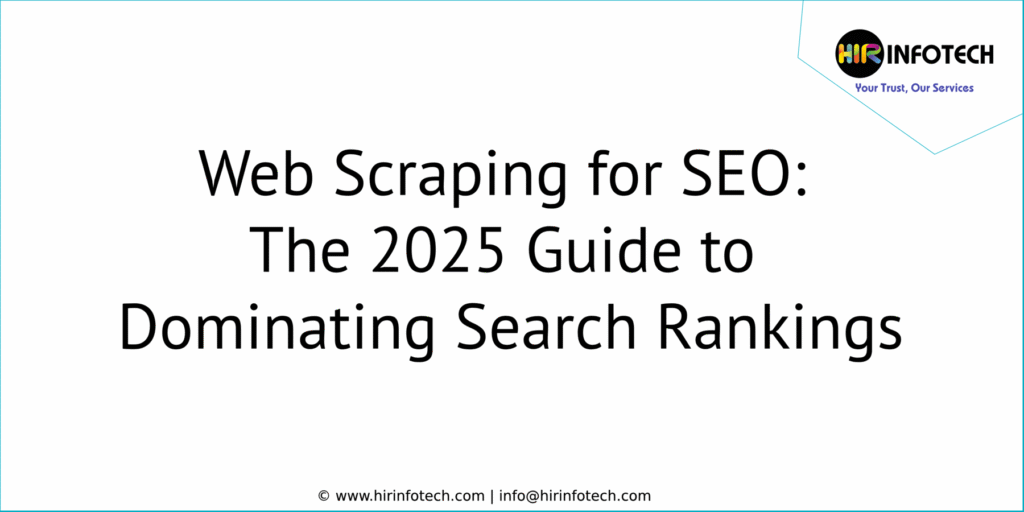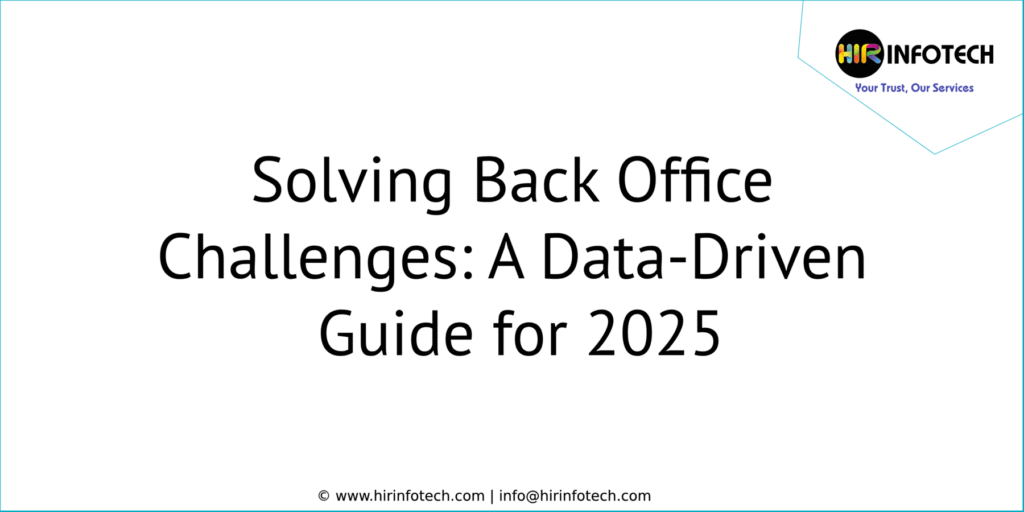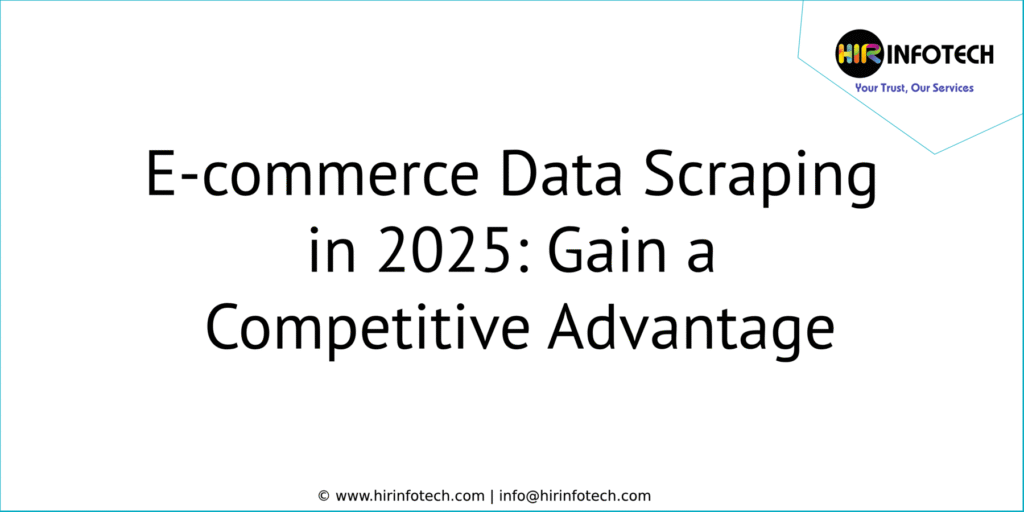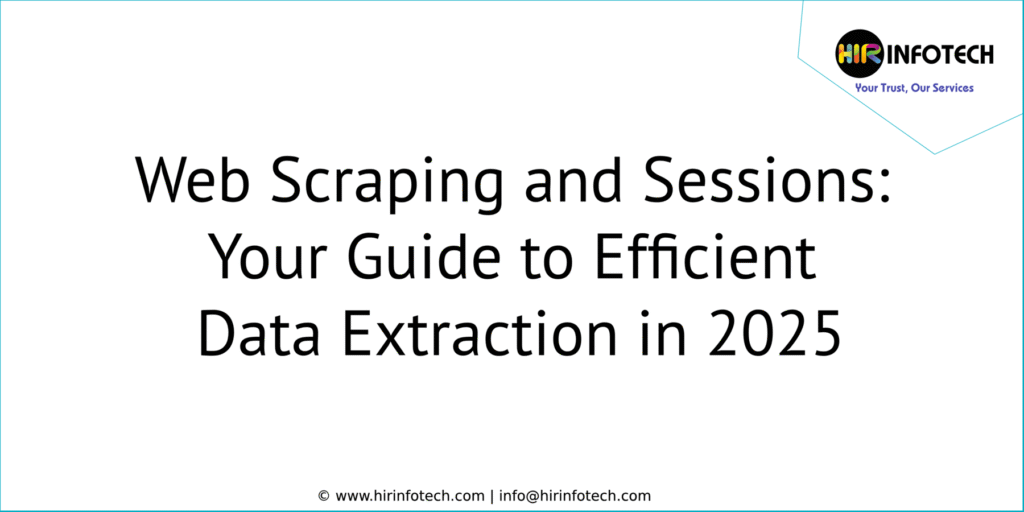
Introduction:
Search Engine Optimization (SEO) is vital for online success. You need to rank high in search results. Web scraping is a powerful technique to achieve this. This guide explains how web scraping can supercharge your SEO in 2025. No technical jargon, just practical advice.
What is Web Scraping? (Simplified)
Imagine a research assistant that automatically collects data from websites. That’s web scraping in a nutshell. It extracts information and organizes it into a usable format. It’s like copying and pasting, but done by a computer program – much faster and more efficiently.
Why Web Scraping is Essential for Modern SEO
The SEO landscape is constantly changing. Google’s algorithms are always evolving. To stay ahead, you need data. Web scraping provides that data:
- Keyword Research: Find the best keywords to target.
- Competitor Analysis: See what your rivals are doing right (and wrong).
- Backlink Analysis: Identify valuable backlink opportunities.
- Content Optimization: Create content that ranks high and engages your audience.
- Technical SEO Audits: Find and fix technical issues on your website.
- SERP Tracking: extraction of SERP data to get insights.
- Local SEO Optimization: It improves local search visibility.
How Web Scraping Specifically Boosts Your SEO Results
Let’s break down the key benefits:
- Supercharged Keyword Research:
- Traditional Keyword Research: Using tools like Google Keyword Planner is a good start.
- Web Scraping Advantage: Go beyond basic tools. Scrape competitor websites, forums, and Q&A sites to discover hidden keywords and long-tail phrases that your competitors are missing. See what questions people are actually asking.
- Example: Scrape Reddit, Quora and relevant subreddits.
- Unbeatable Competitor Analysis:
- Traditional Analysis: Manually visiting competitor websites and taking notes.
- Web Scraping Advantage: Automate the process. Track competitors’ content, keywords, backlinks, pricing, and even website changes. Get real-time alerts.
- Example: Track a competitor’s blog to see what topics they’re covering and how their content is performing.
- Powerful Backlink Building:
- Traditional Backlink Building: Manual outreach and guest blogging.
- Web Scraping Advantage: Find websites that link to your competitors but not to you. Identify broken links on relevant websites (a great opportunity for link building).
- Example: Scrape a competitor’s backlink profile to find high-authority websites in your niche.
- Content Optimization that Actually Works:
- Traditional Content Optimization: Guessing what content will perform well.
- Web Scraping Advantage: Analyze top-ranking content for your target keywords. See what topics, formats, and lengths are working. Identify content gaps.
- Example: Scrape the top 10 results for a keyword to see what types of content Google is rewarding.
- Technical SEO Audits Made Easy:
- Traditional Audits: Manual checks or using limited SEO tools.
- Web Scraping Advantage: Crawl your entire website (or a competitor’s) to identify broken links, missing title tags, slow page speeds, and other technical issues.
- Example: Scrape your website to find all pages with missing or duplicate meta descriptions.
- Local SEO Domination:
- Traditional Local SEO: Claiming your Google My Business listing and gathering reviews.
- Web Scraping Advantage: Scrape local directories, review sites, and competitor websites to find local citations, track competitor rankings, and identify local keywords.
- Example: Scrape Yelp and Google Maps to find businesses in your area and analyze their reviews.
- Price Monitoring: Track the pricing.
Ethical and Legal Considerations (Staying on the Right Side of the Law)
- Terms of Service: Always, always check the website’s terms of service. Many websites prohibit web scraping.
- Robots.txt: This file (e.g., www.example.com/robots.txt) is a website’s instruction manual for web crawlers. It tells scrapers which parts of the site are off-limits. Respect it! Learn more about robots.txt files on the Google Search Central website.
- Rate Limiting: Don’t overwhelm the website with requests. Scrape slowly and politely. Add delays between requests.
- Personal Data: Be extremely cautious when scraping personal data. Comply with all relevant privacy laws:
- GDPR (General Data Protection Regulation): Applies to data from individuals in the European Union.
- CCPA/CPRA (California Consumer Privacy Act/California Privacy Rights Act): Applies to data from California residents.
- User-Agent: Identify your scraper with a clear and accurate User-Agent string. This is like leaving a digital business card.
Why Custom Web Scraping is Usually the Best Approach for SEO
While “no-code” web scraping tools exist, a custom web scraping service (like the one Hir Infotech provides) offers significant advantages, especially for serious SEO efforts:
- Complex Website Handling: Many websites are difficult to scrape. They use JavaScript to load content dynamically. They have anti-scraping measures in place. Custom scrapers can handle these complexities.
- Precise Data Extraction: Get exactly the data you need, in the format you need it. No wasted time or effort on irrelevant information.
- Data Quality Assurance: Experts ensure the data is accurate, complete, and consistent. This is crucial for reliable SEO analysis.
- Scalability: Collect large volumes of data from multiple sources. Scale your scraping efforts as your needs grow.
- Maintenance and Updates: Websites change frequently. A custom service will update the scraper to keep it working correctly.
- Legal and Ethical Compliance: Experts ensure your scraping activities are compliant with all relevant laws and regulations.
- Integration with Your Workflow: Seamlessly integrate the scraped data with your existing SEO tools, CRM, or other systems.
The Web Scraping Process (Step-by-Step, with a Focus on Custom Services)
- Consultation and Requirements Gathering: You discuss your SEO goals and data needs with the scraping service provider (like Hir Infotech). This is where you define your ICP, target websites, and specific data points.
- Website Analysis: The scraping experts analyze the target websites. They identify the website structure, data locations, and any potential challenges (like anti-scraping measures).
- Scraper Development: The service provider develops a custom web scraper (usually using Python and libraries like Scrapy, Beautiful Soup, and Selenium). This scraper is tailored to your specific requirements.
- Proxy Implementation: The service sets up proxies to mask your IP address and avoid getting blocked. They often use rotating residential or mobile proxies for maximum reliability.
- Data Extraction: The scraper runs automatically, collecting the data from the target websites.
- Data Cleaning and Validation: The scraped data is cleaned, validated, and structured. This includes removing duplicates, handling missing values, standardizing formats, and correcting errors.
- Data Delivery: You receive the cleaned data in your preferred format (CSV, Excel, JSON, or directly to your database or CRM).
- Ongoing Monitoring and Maintenance: The service provider monitors the scraper’s performance and makes updates as needed to ensure continued data accuracy.
Example: Using Scraped Data to Improve Content Strategy
Let’s say you’re a SaaS company selling project management software. You want to improve your content marketing to attract more organic traffic. Here’s how web scraping could help:
- Identify Top-Performing Content: Scrape the blogs of your top competitors. Analyze the topics, formats (e.g., listicles, how-to guides, case studies), and lengths of their most popular posts (based on social shares or comments).
- Find Keyword Gaps: Scrape search engine results pages (SERPs) for your target keywords. Identify questions people are asking that aren’t being adequately answered by existing content.
- Analyze Customer Reviews: Scrape review sites (like G2, Capterra) to understand what customers like and dislike about competitor products. Identify pain points and unmet needs.
- Create Data-Driven Content: Use the insights from your scraping to create content that:
- Addresses relevant topics.
- Answers common customer questions.
- Provides unique value.
- Is optimized for the right keywords.
- Matches the format and style of successful competitor content.
Tools and Technologies (A Brief Overview)
- Programming Languages:
- Python: The most popular language for web scraping. Has excellent libraries.
- Python Libraries:
- Requests: For making HTTP requests to websites.
- Beautiful Soup: For parsing HTML and XML.
- Scrapy: A powerful framework for building and managing web scrapers.
- Selenium: For automating web browsers and handling dynamic content.
- No-Code Tools: (Less relevant for custom services, but worth mentioning)
- Octoparse
- ParseHub
- Scraping APIs:
- ScraperAPI
- Zyte API (formerly Scrapinghub)
- Proxy service provider:
- Bright Data
- Oxylabs
Best Practices (Reinforcement)
- Target Your Scraping: Focus on the most relevant websites and data points.
- Respect Website Rules: Always follow terms of service and robots.txt.
- Scrape Responsibly: Use delays, proxies, and user-agent rotation.
- Prioritize Data Quality: Implement thorough data cleaning and validation procedures.
- Document Your Process: Keep track of your scraping activities.
- Stay Up-to-Date: The web scraping landscape is constantly evolving. Keep learning and adapting.
Frequently Asked Questions (FAQs)
- Is web scraping legal?
Generally, yes, if you scrape publicly available data, respect website terms, and comply with privacy laws. Consult with legal counsel if you have any doubts. - How can I avoid getting blocked?
Use proxies, rotate user agents, implement delays, and follow the website’s robots.txt. A custom scraping service will handle these complexities for you. - What’s the difference between web scraping and crawling? Web crawling is the process of discovering and indexing web pages (like search engines do). Web scraping is the process of extracting specific data from those pages.
- How much does web scraping cost?
The cost of a custom scraping service depends on the project’s complexity, the volume of data, and the frequency of scraping. Contact Hir Infotech for a custom quote. - Can I scrape data if the website has Login? Yes, we can scrap data using selenium.
- Can web scraping be used for mobile app data?
Yes, but it’s generally more complex than scraping websites. Different techniques are required. - How do I handle websites with infinite scrolling or pagination? Scrapy and Selenium can handle pagination. You need to identify the “Next” button or trigger and programmatically interact with it.
Transform your SEO strategy with the power of web scraping. Hir Infotech provides expert, custom web scraping services designed to deliver high-quality, actionable data. We handle the technical challenges, so you can focus on ranking higher and driving more organic traffic. Contact us today for a free consultation and let’s discuss your SEO data needs!



